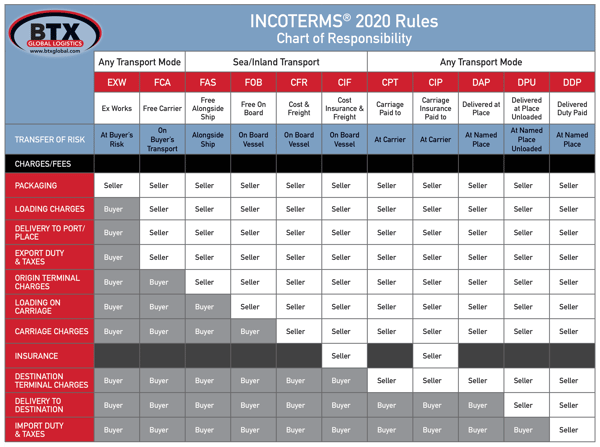What are IncoTerms?
The IncoTerms rules are the world’s essential terms of trade for the sale of goods published by the International Chamber of Commerce.
Whether you are filing a purchase order, packaging and labelling a shipment for freight transport, or preparing a certificate of origin at a port, the IncoTerms rules are there to guide you. The IncoTerms rules provide specific guidance to individuals participating in the import and export of global trade on a daily basis by specifying what risk and cost each party is responsible for.
Who needs to know IncoTerms?
Anyone who is importing international goods should have an understanding of IncoTerms. No matter the mode of transport, IncoTerms provide guidance to importers, exporters and transporters around the world.
Why are IncoTerms so important?
Simply put, IncoTerms are the language of global trade. Using Incoterms within any global trade agreement helps eliminate language barriers by giving all parties the same definition of specific terms. This reduces the risk of problems during shipment by ensuring that all parties clearly understand their responsibilities.
 Key Changes of the 2020 IncoTerms:
Key Changes of the 2020 IncoTerms:
- FCA: Free Carrier
This Term has changed the most in the 2020 IncoTerms. Under the FCA Term, the seller is responsible for either making the goods available at its own premises or at a named place. In either case, the seller is responsible for loading the goods onto the buyer’s transport and is responsible for delivery to the port and export clearance (including security requirements). The cost of risk will then transfer to the buyer once the goods are loaded onto the buyer’s transport. - DPU: Delivered at Place Unloaded
Previously named Delivered at Terminal (DAT), this Term has been named for the 2020 IncoTerms. Under this newly coined Term, the buyer and/or seller may want the delivery of goods to occur somewhere other than a terminal. This Term in particular is often used for consolidated containers with multiple consignees and is the only Term that transfers risk to the seller when unloading the goods. The seller is to clear the goods for export and will assume all risk and costs associated with delivering the goods and unloading them at the terminal or place of destination. Once the goods have been unloaded, the buyer is then responsible for all risks and costs from that point forward.
- CIF: Cost, Insurance and Freight
CIF Term indicates that the seller has cleared the goods for export and delivered them safely aboard the vessel at the port of shipment. The seller bares the cost of freight and insurance to the named port of destination. The seller is also required to purchase a minimum level of insurance for the buyer that complies with Clause C of the Institute Cargo Clauses. The buyer is then responsible for all costs associated with unloading the goods at the destination port and clearing goods for import. The risk and costs are passed from the seller to the buyer once the goods are on board the vessel at the port of shipment. - CIP: Carriage Insurance Paid To
Similar to CPT, this Term implies that the seller is obligated to clear the goods for export and deliver them to the carrier or another party, specified by the seller at a named place of shipment. However, in the 2020 IncoTerms, the seller is now responsible for both the transportation costs and procuring insurance coverage to the destination.
BTX Global Logistics is a worldwide provider of shipping, logistics and e-commerce solutions.














.png)